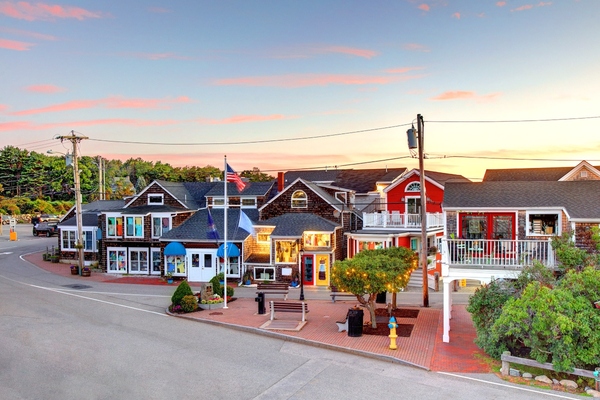Smart city partnership reduces energy usage by two-thirds
RealTerm Energy and Ubicquia claim that by converting to LED lights and adding lighting controls, US and Canadian cities reduced energy consumption by 3,721,673 kWh annually.
A partnership between turnkey LED streetlight conversion specialist RealTerm Energy and smart city infrastructure company Ubicquia, claims to have helped 30 cities reduce streetlight and energy consumption by 67 per cent across the US and Canada.
The companies claim that by converting to LED lights and adding lighting controls, cities reduced energy consumption by 3,721,673 kWh annually, the equivalent of taking 568 typical gasoline-powered vehicles off the road.
Smart lighting
According to research by Northeast Group, LED conversions with smart lighting controls typically result in a 60-80 per cent reduction in energy usage, along with a corresponding reduction in carbon emissions.
More than half the cities in North America have made the conversion to LED lights but less than 10 per cent have opted to add lighting controls. Lighting controls can deliver an additional ~20 per cent in energy-savings by enabling communities to implement remote dimming schedules.
They also give cities real-time alerts that help them predict, prevent, and address challenges, thereby radically improving operational efficiency.
“We’re saving money through reduced operating costs and reducing greenhouse gas emissions, and as an extra perk, we received recognition and a grant award from NYSERDA”
The Town of Ogunquit, Maine, reported that by changing to LED streetlights, instead of paying Central Maine Power $75,000 annually, the cost to taxpayers will be less than $12,000. In addition to the cost savings, the environmental benefits through reduced energy usage is estimated to reduce the Town’s carbon footprint by 139 tons annually.
“By deploying next-generation smart lighting controls and air quality monitoring platforms in communities across the country, RealTerm Energy and Ubicquia are helping municipalities improve the environment and quality of life for their residents,” said Mark Carter, vice president of smart solutions, RealTerm Energy.
The technology portfolio includes: UbiCell Smart Streetlight Controller, which allows communities to schedule and dim lights, enabling them to reduce power consumption, carbon emissions and cost; UbiSmart Air Quality Monitor Plus, which gives cities a way to monitor particulate pollution and other air quality hazards; and UbiVu, a cloud-based management tool that makes monitoring and operating cities’ intelligent street infrastructure more intuitive. Cities can use this to monitor energy usage data and air quality, as well as troubleshoot equipment and perform scheduling.
Marcy Denker, sustainability coordinator, Village of Nyack, New York, which utilises the technology, said: “We are very pleased that we have taken on the management of all our streetlights and completed the conversion of our cobraheads and decorative fixtures in the project with RealTerm.
“We have also declared ourselves a Dark Sky friendly community. This conversion reduces nighttime lighting and glare without compromising the public safety benefits of street lighting”
“We’re saving money through reduced operating costs and reducing greenhouse gas emissions, and as an extra perk, we received recognition and a grant award from NYSERDA [New York State Research & Development] for the accomplishment.”
The technology is also deployed in the Town of Pepperell, Massachusetts. “Pepperell is strongly committed to climate change issues and considered converting to LEDs as an opportunity to reduce energy consumption,” said town administrator Andrew MacLean. “We have also declared ourselves a Dark Sky friendly community and strive to eliminate unneeded nighttime lighting. This conversion reduces nighttime lighting and glare without compromising the public safety benefits of street lighting.”
SmartCitiesWorld and Ubicquia are hosting a webinar, The Streetlight Infrastructure…The New Face of Public Safety, on 7 June 2022.




Leave A Comment